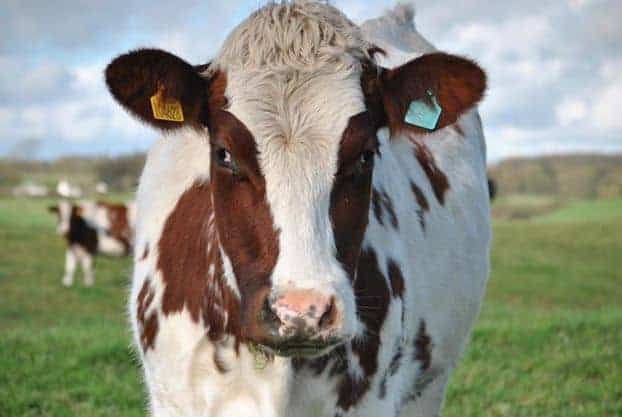A recent YouGov consumer omnibus survey conducted on behalf of First Milk has shown that three-quarters (76%) of consumers are concerned about climate change, with almost one-third (29%) taking environmental factors into account when choosing food.
The survey, conducted in late March 2021, showed the following:
- 76% of UK adults concerned about climate change in general
- 29% of UK adults take the overall impact on the environment into consideration when buying food
- 33% of UK adults think that farming and the production of dairy foods significantly contributes to climate change
- 46% of UK adults think rearing of animals for meat consumption significantly contributes to climate change
- 37% of UK adults think food waste significantly contributes to climate change
When it comes to dairy consumption, 94% of UK adults said they purchased dairy products for themselves or others, although this figure declined to 78% in 18-24-year-olds. The purchase of dairy products was highest in Northern Ireland (98%) and lowest in London (86%).
More than three-quarters of UK adults would most prefer to buy milk and dairy products guaranteed to come from cows that have access to pasture/the outdoors (78%), with almost two-thirds (63%) saying they are concerned about the welfare of dairy cows in the UK.
Commenting on the results, Mark Brooking, Sustainability Director, First Milk, said:
“This survey reinforces that UK consumers are concerned about climate change, with many taking environmental factors into consideration when choosing food. It also highlights the level of interest UK consumers have in animal welfare and dairy production systems.
“We know that the UK farming sector takes its responsibilities seriously and has a good track record in terms of animal welfare, with a growing focus on environmental responsibility, especially around climate change. But we all share the responsibility for communicating to consumers about the great work going on across the farming sector and highlighting the importance of the many initiatives that underline the positive benefits of UK farming and food.
“At First Milk, these findings simply strengthen our commitment to our First4Milk programme, which guarantees cows have access to grazing, and commits us to achieving net zero by 2040 at the latest. Making these commitments helps us safeguard the future for our dairy farmer owners, ensuring that consumers can continue to enjoy the great taste, nutrition and health benefits available from a balanced diet including dairy consumption, with none of the associated climate or animal welfare guilt.”
- All figures, unless otherwise stated, are from YouGov Plc. Total sample size was 2161 adults. Fieldwork was undertaken between 22nd – 23rd March 2021. The survey was carried out online. The figures have been weighted and are representative of all UK adults (aged 18+).
· First Milk is a British farmer-owned co-operative with a vision to create value for members by delivering long-term dairy prosperity in the form of success, profitability, security and well-being.
· First Milk produces a fantastic range of great-tasting Cheddar, Red Leicester and Double Gloucester – which is sold in the UK through our partner, Ornua. It also exports cheese to more than 26 countries.
· In addition to producing cheese, First Milk produces bulk cream and whey proteins. It also focuses on providing high quality, traceable fresh milk to a range of dairy manufacturers and processors across the UK. It works with many customers as their long-term supply partner, helping them to deliver their objectives through its responsible sourcing and supply chain management services.
· The First4Milk sustainability programme, incorporating the First4Milk Pledge, sees the co-operative focus on a range of initiatives under three key themes – People, Animals and Earth – to regenerate the earth every day to enrich life and nourish future generations. These include:
-
- A commitment to net zero carbon emissions by 2040 at the latest, with a target to reduce carbon footprint at farm level by 50% by 2030 and achieve net zero in milk transport and processing by 2035.
- A target to sequester 100,000 tonnes of CO2 per annum on members’ farms by 2025, by enhancing biodiversity and soil health
- A target to increase milk from forage by 10 per cent by 2025 to reduce members’ reliance on imported feeds.
- The aim for all transport and processing activity to be using renewable fuel sources by 2030.
- The intention to reduce antibiotic use by a further 10 per cent by 2025 (already 23% below RUMA 2020 targets).
o A commitment to provide a minimum of 120 days access to pasture for all dairy cows.
· Find out more at www.firstmilk.co.uk






